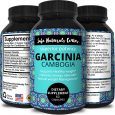9 Tips for Blemished Skin
When you have blemished skin, it can really do a number on your self-esteem. It’s not easy to look at yourself in the mirror without feeling frustrated and just wanting the problems to go away.
And while there’s no magic cure for blemished skin, there are things you can do to help reduce blemishes from acne. There are several different types of blemishes in this category including pimples, cysts, and blackheads.
Some basic skin care tips can help you to reduce the blemishes you have and improve the quality of your skin overall. Let’s take a look at some simple ways you can see better skin when you look in the mirror.
Gentle Cleansing
Because acne is associated with oily skin, many people use harsh cleansers to try to dry out the oil. In actuality, this does the opposite of what you want it to do. When you over dry your skin, it actually stimulates it to produce more oil.
And as you develop dry skin, your skin begins to flake and the dead cells can actually become debris that clogs your pores even further. This can actually make an acne problem worse.
That doesn’t mean you shouldn’t cleanse it – just that you should make sure to use the proper type of cleanser. Look for cleansers that are free from alcohol which can dry the skin.
Look for cleansers that are free from sulfates and labeled alcohol-free. These are going to be less harsh and keep you from developing flaky, dry skin. You should also look fro cleansers labeled for sensitive skin that don’t contain harsh fragrances.
It’s important to wash away oils and dirt from the day, including makeup. Make sure to cleanse your skin in the morning when you wake up and again before you go to bed. Use a clean washcloth and make sure that you get all of your makeup removed.
Keep Skin Moist
Often people with oily skin or acne think that moisturizing your skin is going to make it worse. However, with proper cleansing and the right moisturizer, your skin will actually benefit from adding it to your skin.
The key is to use moisturizers that are oil-free. You need to keep your skin from drying out, but you don’t want to add products to your skin that will clog your pores and cause acne to develop.
When you don’t add moisture, your skin will produce even more oil to compensate and keep your skin from drying out. However this type of moisture will cause acne to get worse.
When choosing moisturizer, look for one that’s formulated for sensitive skin and is labeled oil-free. You’ll also want to look for moisturizers that are formulated for skin that’s blemish-prone.
You may find ingredients such as tea tree oil and salicylic acid in moisturizers made for people with acne. These products help to fight the bacteria that causes clogged pores to develop inflammation the actual problem.
Resist the Urge to Pick
When you have acne, you may feel the urge to pick at your skin and this can actually cause even more problems. Popping pimples can actually lead to infection and scarring.
Continuing to pick at skin can cause scabs that are unsightly and not easy to cover. Scabs that are continually picked will lead to permanent scars and marks on your face.
It’s best to treat acne with specific products and then leave it alone. Picking, squeezing, and digging into your skin can cause your skin to look even worse. It can also lead to infection.
It can be difficult to leave your skin alone when you have an unsightly pimple. You may want to get rid of it immediately so no one will see it. However, if you pick at your skin you can actually cause scars that will last much longer than the acne itself.
Patience will save you from having long-term problems that come from having blemishes that become scars. Continue to treat spots that are troublesome, but don’t try to speed things along by squeezing and picking.
Choose Makeup Carefully
Makeup can help you to have skin that looks clearer, but it can also lead to acne if you use the wrong kind. Avoid makeup that could clog pores even more such as foundations that contain oil.
Look for cosmetics that are labeled oil-free and noncomodogenic That means that they won’t clog pores. Some makeup is even formulated specifically for skin that’s prone to acne.
Choose powders over cake makeups as these are less likely to cause blemishes. In particular, mineral makeup is formulated not to clog pores and cause acne to develop on the skin.
Stay Hydrated
Keeping your skin healthy begins on the inside. Drinking plenty of water will help you to stay hydrated and cause your skin to become healthier. For most people, eight to ten glasses of water are appropriate.
If you exercise a lot, you’ll need more water to stay hydrated and make up for the loss of sweat. But how does drinking water help your skin to stay clear? There are a few ways it does this.
Water helps your body to get rid of toxins and reduces inflammation all over the body. It also helps to keep your skin hydrated so it doesn’t overproduce oil that can lead to more acne.
Water also helps your body to absorb vitamins and minerals better and make use of them. Water is the most important substance you can put into your body, so make sure that you’re drinking plenty of it.
Add Nutrition to Your Diet
Great nutrition lead to healthy skin. Make sure to eat many fruits and vegetables. These provide you with the building blocks for healthy skin. In particular, you need to make sure you’re getting plenty of vitamin A from your diet.
Vitamin A comes from vegetables and fruits that have orange coloring such as carrots and cantaloupe. Make sure to eat plenty of this color when you eat your fruits and veggies.
You’ll also want to eat foods high in vitamin E. Vitamin E comes from green vegetables such as dark, leafy greens and broccoli. While you should try to get these vitamins from food, taking a multivitamin supplement can also support healthy skin.
It’s a myth that foods like pizza and chocolate cause acne. However, you may notice that some foods do cause your skin to break out. Those foods may be individual for you and when you notice them, stay away from them.
Keep Oil Off of Your Face
There are several sources of oil that can come in contact with your face and lead to problems with acne. Pay attention to the things that come in contact with your face.
For example, greasy hair products can come in contact with your skin and actually lead to acne. Pay attention to the hair products you’re using and try to keep them away from your hairline.
Your scalp naturally produces oil for your hair – which is normal. But when your hair is touching your face that oil can be transferred to your skin. Make sure to keep hair away from your face to prevent acne.
You might not realize you even do it, but touching your face regularly can transfer dirt and oils from your hands to your face. The more you touch your face, the more likely you’ll be to develop acne in the areas you touch.
Investigate Underlying Causes
We often look at the skin in isolation and focus acne treatment on it. But the skin is connected to all the other systems of the body and it can be affected by things going on inside it. For example, acne can be caused by:
· Hormonal changes
· Stress
· Allergies
· Medications
· Genetics – a family history
It’s important to look at the possible causes in your own life and see if there’s something that can be changed. You may need to change a medication or work to balance hormones.
It may also be critical for you to learn new ways to manage stress so that your body will stay balanced and inflammation of your skin will stay at bay. You may even want to keep a diary of your acne to see if there are specific times when it gets worse. This can give you insight into the underlying cause.
Seek Treatment from a Professional
If you’ve looked at lifestyle factors and taken care of simple things you can do on your own but you still have acne, you should consider seeking professional help. There are many treatments for acne that can help to get rid of it.
In this day and age, there’s no reason to just live with acne which can be embarrassing and even painful. A healthcare provider can help you develop a program that will keep your skin healthy.
There are some over the counter treatments such as benzoyl peroxide and salicylic acid that can reduce acne, but you may find that you need some prescription help to get rid of acne.
For women, birth control pills are often prescribed to treat acne. They work by regulating your hormones. If hormones are the cause of your problems, this is a possible solution.
Antibiotics are also prescribed to help treat acne. You can take oral antibiotics that will start to clear acne from the inside out. There are also topical medications that are antibiotic and penetrate the skin.
There are several topical products designed to treat acne that can only be purchased with a prescription. Your dermatologist can discuss options with you for topical treatments.
Some dermatologists remain laser therapies or light therapies. Laser therapy is actually used to slow down the production of oil glands in the deep layers of the skin. Light therapy works to kill bacteria in the skin.
There are also procedures such as chemical peels and microdermabrasion that will help to reduce acne and can also help you to get rid of acne scars left over from your days of picking at your skin.
You may also want to visit with a homeopathic doctor and discuss herbal treatments for acne. There are several supplements such as brewer’s yeast and zinc that have been shown to help acne.
When you have acne, you may feel alone and frustrated. You may feel like there’s no hope for you. But you should know that acne has been well researched and there are many treatments for it.
You don’t need to be embarrassed about this common problem. But you shouldn’t ignore it. What’s going on with your skin is a signal that something is off balance in your skin or somewhere else in your body. Make sure to improve your lifestyle and seek treatment if you need it.
Recommended Products For Blemished Skin


















































